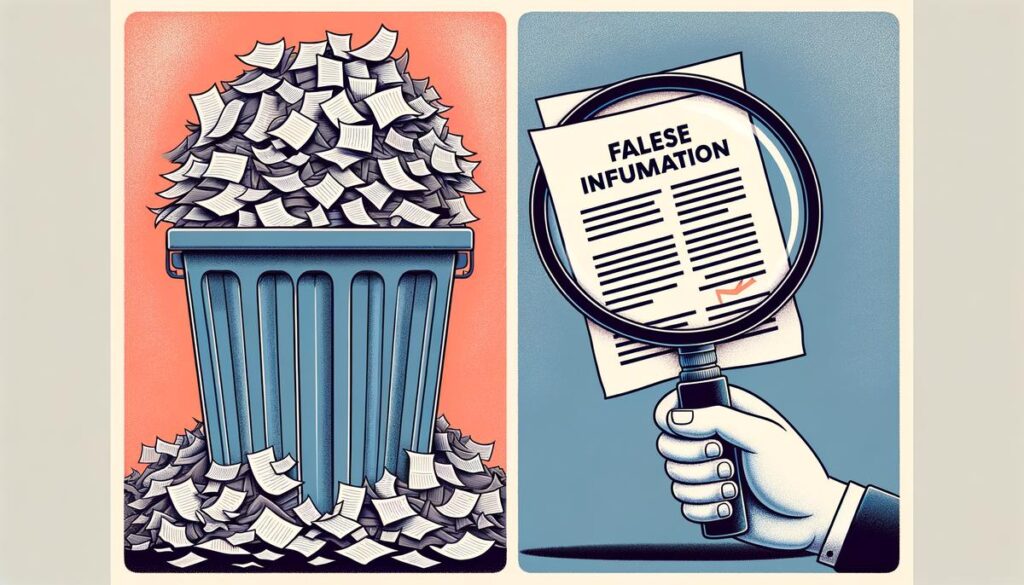The 2020 Presidential election has been a topic of heated discussion, with many voices raising concerns and others defending the process. This article aims to sift through the noise, examining claims of election theft and fraud without taking sides. By looking into various allegations and scrutinizing them against the evidence available, we aim to provide a clearer picture of what really happened during that contentious election period.
The Allegation of Election Theft
From the lips of high-ranking officials to courtrooms across the states, allegations of massive election fraud that tipped the scales have been scrutinized. Trump's own Attorney General, William Barr, firmly stated that the election hadn't been stolen through fraud, asserting that after countless investigations, evidence for such colossal fraud just didn't materialize.1
Fact Check
Claim: 2020 Presidential election was stolen through fraud
Description: There were various allegations around the falsification of the 2020 Presidential election to favor Joe Biden over Donald Trump, with claims of massive election fraud, vote-flipping through voting machines, and Dominion Voting Systems rigging the election. However, investigations found no substantial evidence to support these allegations.
Talk about suitcases full of ballots sneakily counted away from prying eyes spurred many to doubt the election's integrity. However, upon closer inspection by various officials—including those appointed by Trump himself—these suitcases were standard fare in the ballot-counting process.2
Claims swirled around voting machines conspiring to flip votes from Trump to Biden. Investigations led by various officials found no evidence of such digital deceit. Those tasked with protecting our nation's cybersecurity proclaimed the 2020 election "the most secure in American history."3
A meticulous investigation by the Associated Press spanning battleground states discovered only a minuscule fraction of voter fraud—nowhere near enough to swing the election's outcome.4 These findings starkly contrast with the tidal wave of claims suggesting otherwise.
Trump's legal brigades wielded allegations of election theft across multiple states. Under the rigorous scrutiny of the judiciary, these claims met their match. Courts, including those with Trump-appointed judges, found insufficient evidence to subvert the election results.5
The narrative of a stolen election doesn't hold up under legal and factual scrutiny. High-ranking officials within Trump's circle, cybersecurity guardians, and judges across the judicial spectrum have anchored their conclusions in evidence—or the notable lack thereof. Perhaps the chiseled inscriptions of fact can help us navigate through the foggy mist of claims and counterclaims that continue to enshroud the 2020 Presidential Election.

Dominion Voting Systems Conspiracy
Dominion Voting Systems faced rumors of wrongfully rigging the election against Trump. William Barr, who was the Attorney General under Trump, called the claims "complete nonsense." He pointed out that they looked into it and found nothing fishy with Dominion. Others in Trump's circle hoped to catch a glimpse of the alleged chaos but the massive fraud party didn't exist.
Dominion Voting Systems stood accused of flipping votes. The accusations disappeared into thin air, chiefly because evidence was as elusive as Bigfoot on a holiday. No, Dominion didn't swap votes, and Hugo Chavez's ghost was not manipulating voting machines from beyond the grave.6
The explosive documentary "2000 Mules" hoped to provide irrefutable proof, but turned out to be more fluff than substance. Old footage and slippery stats created a narrative that quickly fell apart. Expert after expert pointed out the loose threads until the whole fabric of the argument unraveled. The "evidence" was like watching distant and muffled fireworks—you sort of get why there's a fuss, but it's too far to make an impact.7
- William Barr, Trump's Attorney General, found no evidence of Dominion Voting Systems rigging the election.
- Claims of Hugo Chavez's ghost manipulating voting machines were baseless.
- The "2000 Mules" documentary failed to provide irrefutable proof of election fraud, with experts debunking its claims.
In this whirlwind tour of fact versus fiction, Dominion's supposed grand scheme to rig an election against Trump turned out to be a wild goose chase. A chase that brought real facts back into the spotlight. The key players in getting to the bottom of all this weren't applying movie logic but good old boring detailed examinations and finding reality to be far less scripted than some had hoped.

As we've walked through the maze of claims about the 2020 Presidential Election and Dominion Voting Systems, it's evident that facts stand firm against waves of misinformation. High-ranking officials, exhaustive investigations, and judicial rulings have all pointed towards an election that was secure and free from the massive fraud some had claimed. This exploration not only sheds light on these issues but also underscores the importance of relying on evidence over speculation. The narrative spun around a stolen election finds little support when held up to scrutiny, allowing us to appreciate the resilience of our electoral system even amidst tumultuous times.
- Balsamo, M. (2020, December 1). Disputing Trump, Barr says no widespread election fraud. Associated Press.
- Corasaniti, N., Epstein, R., & Rutenberg, J. (2020, November 6). The Times Called Officials in Every State: No Evidence of Voter Fraud. The New York Times.
- Cybersecurity and Infrastructure Security Agency. (2020, November 12). Joint Statement from Elections Infrastructure Government Coordinating Council & the Election Infrastructure Sector Coordinating Executive Committees.
- Cassidy, C., & Izaguirre, A. (2020, December 14). AP FACT CHECK: Trump's claims of vote rigging are all wrong. Associated Press.
- Cummings, W., Joey, G., & Behrmann, S. (2020, December 8). Trump and his allies have won zero out of at least 40 lawsuits they've filed since Election Day. USA Today.
- Polantz, K., & Devine, C. (2020, December 3). Barr says no evidence of fraud that would change election outcome. CNN.
- Kessler, G. (2022, May 11). Analysis | A Georgia ballot harvesting probe found fewer than two dozen ballots. The Washington Post.

